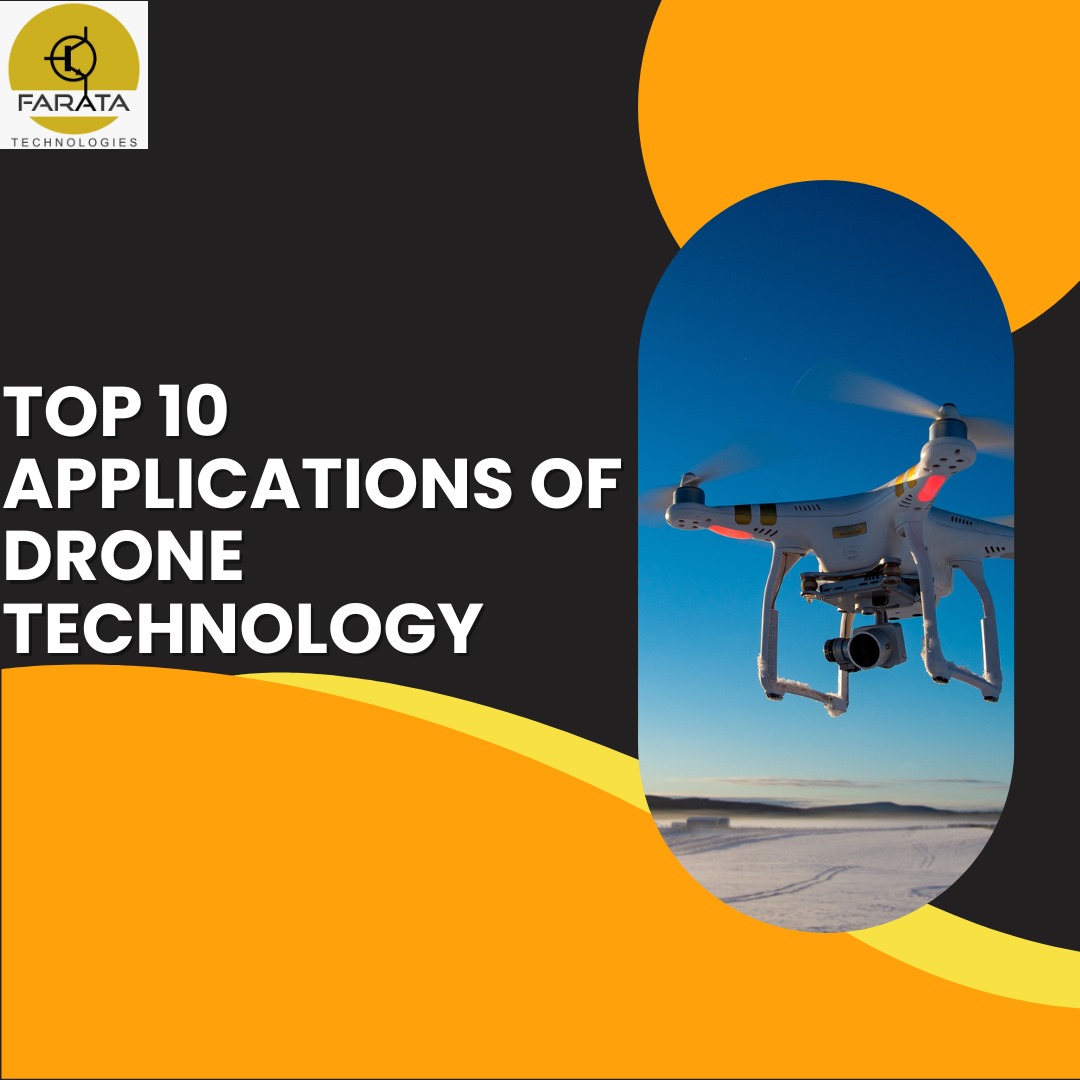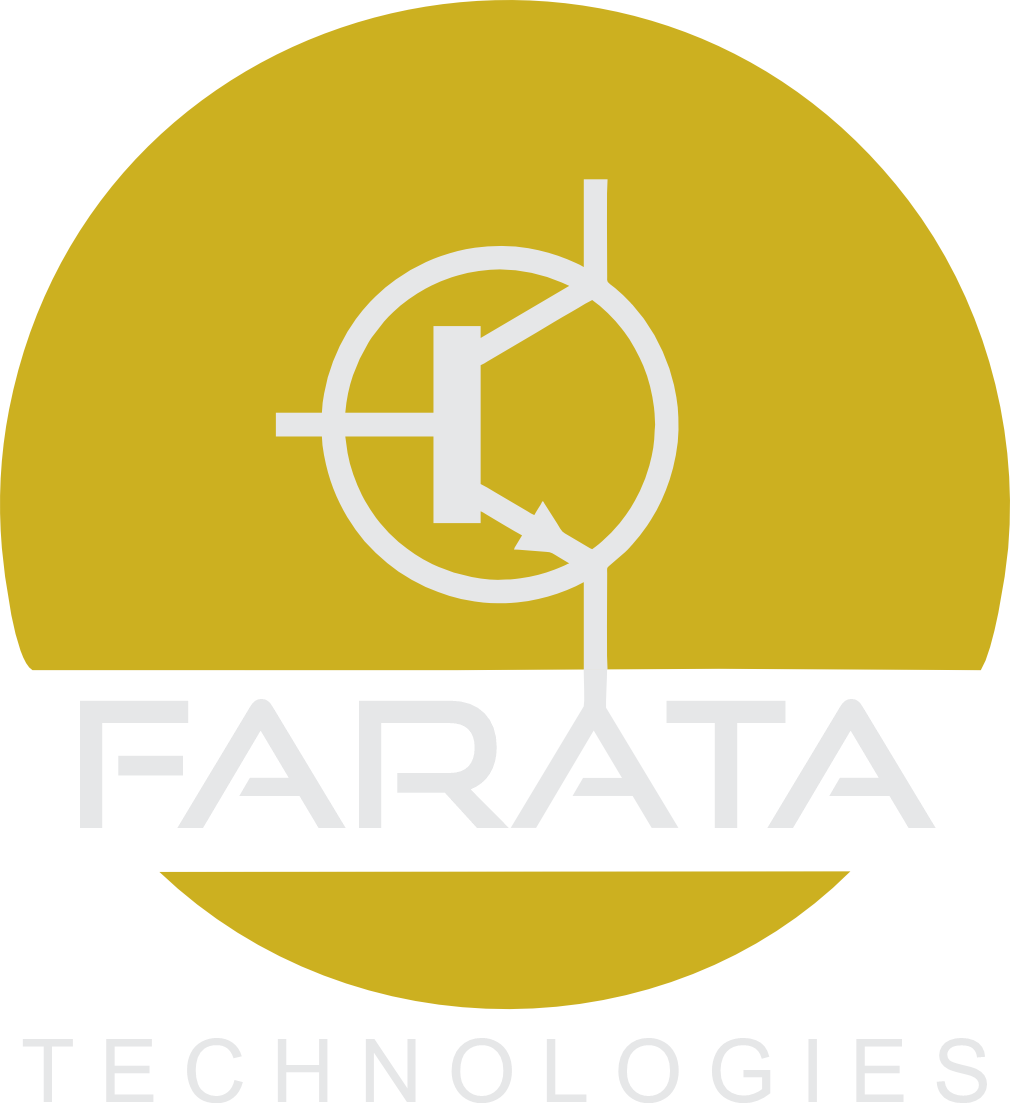
Top 10 applications of Drone Technology
Introduction
Agriculture, the backbone of civilization, has continually embraced technological advancements to enhance productivity and sustainability. In recent years, one innovation has taken center stage: drones. Unmanned Aerial Vehicles (UAVs), commonly known as drones, are transforming the agricultural landscape by offering unprecedented precision, efficiency, and data-driven insights. From monitoring crop health to optimizing irrigation, drones are revolutionizing farming practices worldwide.
Applications of Drones in Agriculture
-
Crop Monitoring and Management
Drones equipped with high-resolution cameras and multispectral sensors provide farmers with invaluable insights into crop health and growth patterns. By capturing detailed images of farmland, drones enable farmers to detect early signs of stress, disease, or nutrient deficiencies. This proactive approach allows for targeted interventions, such as precise pesticide or fertilizer application, reducing costs and minimizing environmental impact.
-
Precision Agriculture
Precision agriculture aims to optimize inputs such as water, fertilizers, and pesticides while maximizing yield. Drones play a pivotal role in this endeavor by facilitating precise mapping and analysis of agricultural fields. Through aerial surveys, drones generate detailed maps indicating variations in soil moisture, fertility levels, and crop density. Armed with this data, farmers can implement site-specific strategies, ensuring resources are allocated efficiently to achieve optimal crop growth.
-
Crop Spraying
Traditionally, crop spraying involved labor-intensive methods or large machinery, leading to uneven application and chemical wastage. Drones equipped with specialized spraying systems offer a cost-effective and environmentally friendly alternative. These drones can navigate with precision, delivering pesticides or fertilizers directly to targeted areas, minimizing drift and runoff. As a result, farmers can maintain crop health while reducing chemical usage and safeguarding surrounding ecosystems.
-
Aerial Seeding
In regions with challenging terrain or inaccessible areas, traditional seeding methods may be impractical. Drones equipped with seed-dispensing mechanisms can overcome these obstacles by precisely distributing seeds across vast expanses of land. This technology is particularly beneficial for reforestation efforts, erosion control, and restoring biodiversity in remote or degraded ecosystems.
-
Livestock Monitoring
Drones equipped with thermal imaging or infrared cameras offer valuable insights into livestock management. Farmers can use drones to monitor animal behavior, detect signs of distress or illness, and assess pasture conditions. This real-time data enables prompt intervention, ensuring the health and well-being of livestock while optimizing grazing practices.
-
Irrigation Management
Efficient water management is critical for sustainable agriculture, particularly in arid or water-stressed regions. Drones equipped with advanced sensors can assess soil moisture levels and crop water stress from above, guiding precise irrigation strategies. By identifying areas requiring more or less water, farmers can optimize irrigation scheduling, conserve water resources, and mitigate the risk of overwatering or drought-induced crop losses.
-
Yield Prediction and Forecasting
Accurate yield prediction is essential for crop planning, resource allocation, and market forecasting. Drones, coupled with machine learning algorithms, analyze aerial imagery and field data to generate predictive models of crop yield. By assessing factors such as plant health, biomass, and environmental conditions, drones empower farmers with valuable insights to optimize harvest timing, anticipate market trends, and maximize profitability.
Conclusion
Drones are revolutionizing agriculture by offering unprecedented insights, efficiency, and precision across various farming operations. From crop monitoring and management to livestock monitoring and yield forecasting, drones are transforming traditional practices and ushering in a new era of precision agriculture. As technology continues to advance, drones will undoubtedly play an increasingly integral role in shaping the future of farming, driving sustainable practices, and ensuring food security for generations to come.
